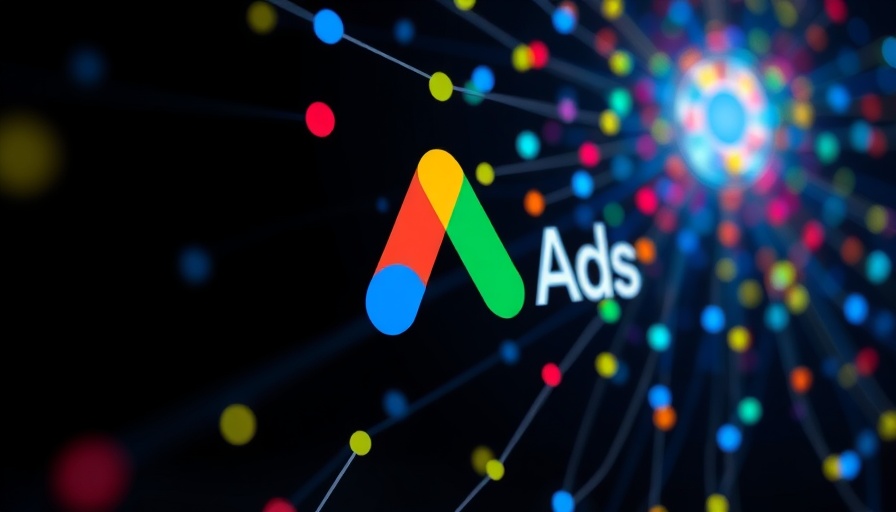
Unleashing AI: Is GPT-5 the Future of Digital Transformation?
The anticipation surrounding GPT-5 is palpable, especially after recent insights shared by OpenAI's CEO, Sam Altman, on Theo Von's podcast. As professionals, business owners, and marketers brace for this revolutionary leap in artificial intelligence, it is crucial to understand how GPT-5 is poised to redefine digital marketing and productivity.
In 'OpenAI’s NEW GPT 5 (FREE!) 🤯', the discussion dives into groundbreaking advancements in AI, prompting us to consider the profound implications on business and digital marketing.
The AI Evolution: What Makes GPT-5 Different?
Reports suggest that GPT-5 isn’t just a faster iteration of its predecessor, GPT-4; it’s set to unify OpenAI’s groundbreaking models, merging reasoning capabilities and multimodality into one powerful tool. Imagine an AI that can engage in conversation, reason through complex inquiries, and even generate images—this is precisely what GPT-5 is promising. As Altman expressed in his discussion, the feeling of inadequacy in the face of such advanced technology is shared even by its creators.
Preparing for the Future: What’s Next for Businesses?
With its capabilities to process vast amounts of information—potentially handling over a million tokens—GPT-5 can remember and analyze entire books in one sweep. This sheer volume of cognitive processing indicates a significant shift that could alter traditional roles across industries. Business owners can expect an AI that not only assists in creating marketing copy but autonomously handles customer service tasks and strategic decisions. The implications of these shifts could redefine operational efficiencies.
The Competitive Edge: Embracing AI Tools in Marketing
As we gear up for GPT-5’s launch, the reality is clear: the businesses that adapt swiftly will prosper. Whether you’re developing content marketing strategies or enhancing your SEO approaches, the integration of AI tools like GPT-5 into your workflow can provide a significant competitive advantage. The countless applications—like automating routine inquiries or optimizing marketing campaigns—highlight an exciting future for digital marketing
Understanding AI Trends: What You Might Not Know
While some perceive AI as a threat, it is more accurately viewed as an emerging partner in business strategy. The recent claim that GPT-5 could compress a decade of scientific innovation into just one year speaks volumes about the potential of AI tools to drive societal advancements at an unprecedented pace. Organizations can utilize GPT-5 to streamline operations, but they must also proactively consider ethical implications, user experience, and quality control in AI-generated content.
Innovative Opportunities: Real-World Applications of GPT-5
Early testers of GPT-5 have already reported outperforming competitive models like Claude Sonic 4—signifying that the tool isn’t just about speed; it’s about delivering accurate, multi-layered responses that aid in complex workflows and decision-making processes. For content creators, this means potential breakthroughs in brainstorming, scriptwriting, and even editing. As GPT-5 becomes accessible, it's essential for professionals to explore these new generative AI tools to maximize output.
Prepared or Not: Are You Ready for GPT-5?
The clock is ticking toward GPT-5's release in August. Businesses and individuals must assess their readiness to not only adopt this new technology but to leverage it effectively. Educational programs and online resources, such as those offered by Julian Goldie’s Goldie Agency, are invaluable sources in facilitating this transition. Learning to utilize AI correctly can lead to significant advancements in operational strategies, positioning businesses ahead of the curve.
Final Thoughts: The Future is AI
In conclusion, GPT-5 is more than just a powerful tool; it represents a paradigm shift in how we operate. This AI revolution will blur the lines between automation and human input in ways we have yet to fully comprehend. As professionals, marketers, and business owners, the imperative is to embrace these advancements and prepare for the inevitable changes in our industries. Get ahead with your digital marketing strategies and explore the capabilities of AI to capitalize on the opportunities that lie ahead.
 Add Row
Add Row  Add
Add 




Write A Comment